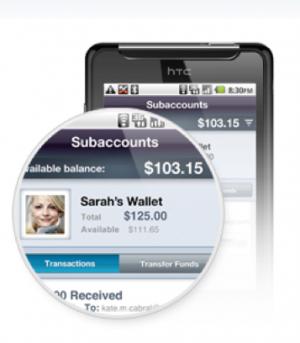American Express Exec: Social Media Now, NFC Later

U.S.-based American Express, long silent on its plans for NFC, has been making its interest in the technology known of late.
But interest appears to be all there is to it for now. While the major U.S. credit card issuer and payments network says it sees a promising future for NFC, the technology is “not going to be an overnight phenomenon,” said American Express Vice Chairman Ed Gilligan this week in an interview.
Gilligan has been making the rounds recently, giving interviews to tout the company’s new embrace of social media and network-based mobile payment. AmEx, the largest U.S. credit card issuer in terms of cardholder spend, seeks to cast off its button-down image and jump onto the social-networking bandwagon.
Over the past couple of weeks, American Express has announced deals with check-in site foursquare and social-network giant Facebook, promising to plug AmEx cardholders into offers based on their “social graph.”
AmEx would deliver the customized offers to registered cardholders, calibrated to the consumers’ likes, preferences and friend’s recommendations. The consumers could then swipe their cards as normal and receive discounts on their next bill. And American Express said it would also help its merchants get into the offers game through social media, then give them analytics to show the effectiveness.
At the same time, AmEx announced partnerships with two of the top three U.S. mobile carriers, Verizon Wireless and Sprint, clearing the way for AmEx’s Serve online mobile-payments application to run on phones sold by the telcos. Serve also could be used to deliver offers, said the card company.
But neither the social-media tie-ins nor the deals with the carriers involves NFC.
American Express did participate in an announcement July 19th by the mobile carrier joint venture Isis, saying it would support the planned NFC-based Isis wallets, expected next year. Isis is made up of AT&T, Verizon Wireless and T-Mobile USA.
Gilligan said in an interview today with Forbes that the agreement with Isis would enable American Express cards to “interoperate with Isis.” That apparently means AmEx has agreed to put its ExpressPay contactless application in the Isis wallets, which will run as an application on NFC phones the Isis-member telcos sell.
American Express has been issuing ExpressPay contactless cards for years and has conducted internal NFC pilots, as well as maintaining membership in the NFC Forum standards and trade group. But it has held no public NFC phone trials, to date.
Gilligan suggested earlier this week in another interview with Bloomberg–also intended to promote the company’s social-media initiative–that the existing NFC infrastructure is not mature.
“I think there are great opportunities with mobile payments and NFC, chips on phones, readers at the merchant locations,” he said. “But we’re in the very early days of this. There’s a lot of attention and a lot of money coming into this space. It’s going to take time to build.”
When asked about the NFC-based Google Wallet, Gilligan credited the search behemoth is “putting its money where its mouth is,” and he said he believes that could have a (positive) impact on the NFC infrastructure. But he suggested it would not be enough for now.
“I’m not saying they’re making a mistake; I can’t comment on their strategy,” he said. “(But) I also think Google is probably spreading some of its bets around, because NFC might take more time (and) it might take less time.”












